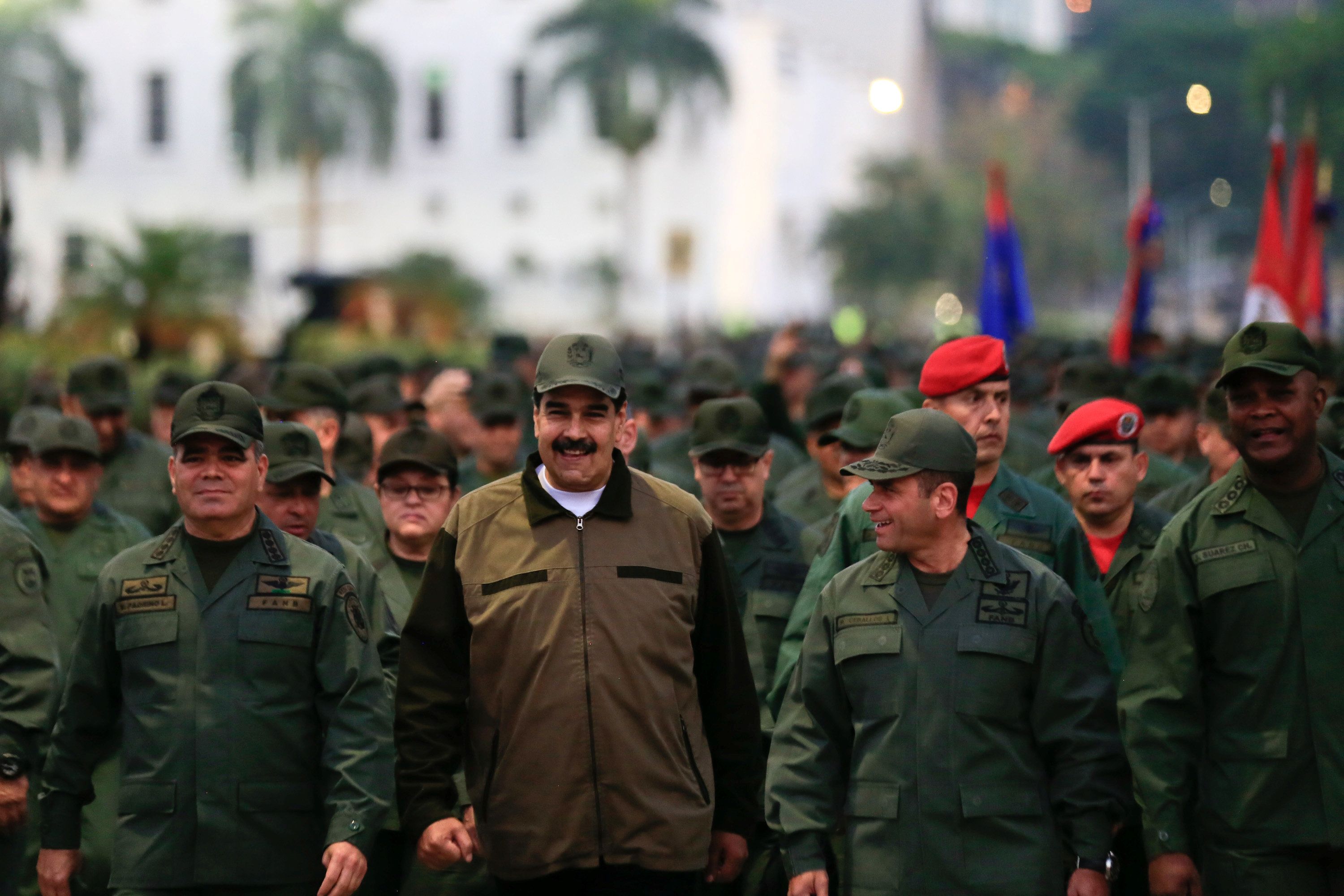May 03, 2019
Venezuelan opposition leader Juan Guaidó's dramatic bid to unseat President Nicolás Maduro earlier this week failed. But as we head into the weekend, neither man is as strong as his supporters hope, nor as weak as his opponents think.
Here are the big lessons from this week.
Maduro survived the biggest single challenge to his rule since he took power six years ago. Defections from the military were minimal, and no high-level figures bolted on him. Furthermore, while repression by the military was firm, he avoided turning the day into a bloodbath that could have galvanized more forceful internal or external pressure.
And yet he still has several challenges to deal with. First, a rogue faction within his domestic security services appeared to have freed a major opposition figure, suggesting that loyalty to him is more fragile than it seems. And the fact that it took him 12 hours to appear on TV to assert control also wasn't a great sign. Second, Washington's claims that top members of the military were in talks with the US about ousting Maduro will – even if unverified – sow discord and suspicion within Maduro's inner circle. And third, Venezuela is still suffering the worst peacetime economic collapse of any country in living memory. Maduro (still) doesn't seem to have a plan in sight to fix that.
Guaidó, for his part, failed in his biggest bid yet to unseat Maduro. Whether because of poor planning, faulty intelligence, or a communications blunder, he was simply unable to muster a critical mass of anti-Maduro support, either on the streets or in the higher ranks of the military.
But on the plus side, he is still a free man. Not only that: he is a free man who still enjoys credibility not only on the streets but with foreign governments, more than 50 of which still recognize him as the rightful president of Venezuela.
That's not nothing. But the challenge, after Tuesday's stumble, is that he's increasingly hard pressed to keep both the optics and the momentum moving in his favor.
Meanwhile, in Finland: The top diplomats from Russia, which backs Maduro, and the United States, which backs Guaidó, may have a tete-a-tete Monday on the sidelines of a meeting of Arctic powers. You can bet Venezuela will top their agenda: Secretary of State Pompeo claims Russian pressure is the only thing that kept Maduro from fleeing to Havana this week, while Foreign Minister Lavrov has warned the US to stop meddling in Venezuela. Sparks may fly!More For You
President Trump has transformed the presidency—and the world—in 12 short months. Harvard’s Stephen Walt joins Ian Bremmer on the GZERO World Podcast.
Most Popular
Think you know what's going on around the world? Here's your chance to prove it.
Members of law enforcement gather, as tensions rise after federal law enforcement agents were involved in a shooting incident, a week after a U.S. Immigration and Customs Enforcement (ICE) agent fatally shot Renee Nicole Good, in north Minneapolis, Minnesota, U.S., January 15, 2026.
REUTERS/Ryan Murphy
This last week has provided a distillation of US President Donald Trump’s view on how American military might should be deployed at home and abroad.
Pro-government supporters holding a Venezuela's flag attend a rally against U.S President Donald Trump in Caracas, Venezuela August 14, 2017.
REUTERS/Ueslei Marcelino
When they meet at the White House today, Venezuelan opposition leader and Nobel Peace Prize winner María Corina Machado will seek to convince US President Donald Trump that it was a mistake to back Delcy Rodríguez as interim leader of Venezuela.
© 2025 GZERO Media. All Rights Reserved | A Eurasia Group media company.
